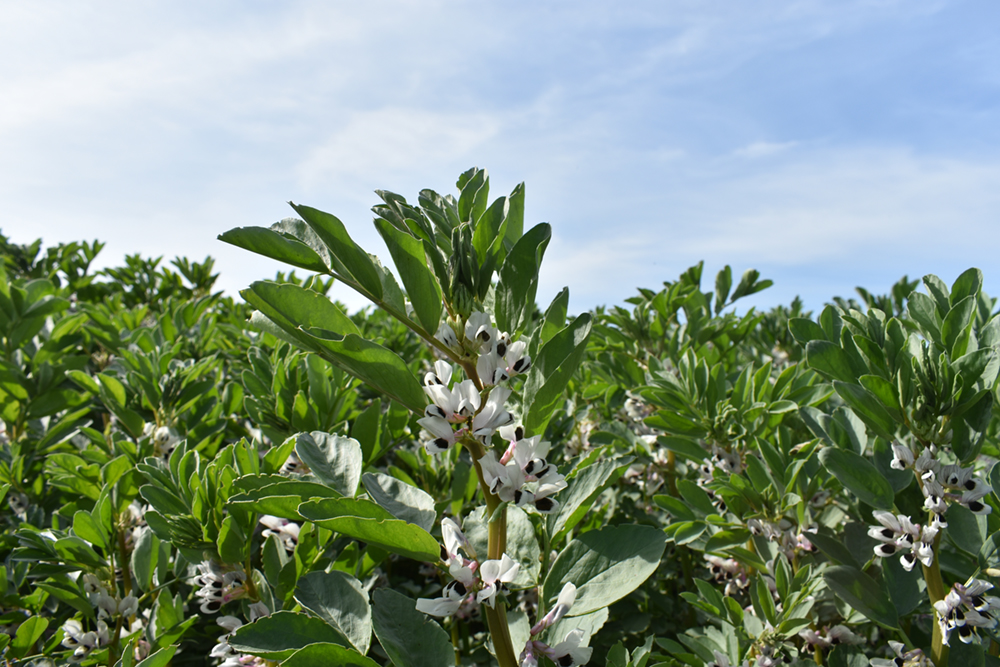

Faunalytics report shows economic upside to plant-based shift in the USA
A new report from Faunalytics explores how a shift toward plant-based food consumption could impact the US economy. Conducted in collaboration with BW Research Partnership and led by Faunalytics Research Scientist Zach Wulderk, the study outlines two potential growth scenarios through 2040 and finds that both could deliver net gains in employment, labor income, and GDP.
Published on 26 March 2025, The Economic Impacts of a Plant-Based Transition evaluates how the increased adoption of plant-based milk, meat, and eggs could affect the broader food economy. While the report is not a projection of what will happen, it models two hypothetical outcomes to understand what could happen under different rates of plant-based food adoption.
The study uses 2022 as a baseline year and compares it to two scenarios: a moderate growth case in which plant-based products become somewhat more common, and a substantial growth case in which these products gain significant market share. In both scenarios, plant-based foods replace animal products in consumer diets. The report does not take into account changes in subsidies, global trade, or price shifts.
Under the moderate growth scenario, the study estimates that the shift could lead to several thousand new jobs, small increases in GDP (0.3%), total tax revenue (0.2%), and labor income (0.4%) compared to maintaining current consumption levels. In the substantial growth scenario, where plant-based products achieve broad consumer uptake, the study projects tens of thousands of new jobs and more marked increases in economic indicators: a 4% increase in GDP, a 2% boost in tax revenue, and a 4% rise in labor income.
“These results suggest that the continued dominance of animal agriculture is not essential to maintaining a strong U.S. economy,” said lead author Zach Wulderk. “In fact, a shift toward plant-based diets may enhance it.”
Agriculture and food production account for a sizable share of the US economy. According to the US Department of Agriculture, the sector supported over 22 million jobs in 2022 – more than 10% of total US employment. As such, any large-scale dietary shift is expected to have measurable effects on labor markets and production systems.
While the overall findings of the study show net economic gains, the authors caution that the benefits would be contingent on achieving substantial adoption of plant-based foods. In particular, the more optimistic growth scenario assumes a future in which plant-based meat becomes as common as plant-based milk is today, and in which half of all milk purchases are plant-based.
The study recommends that advocates for plant-based diets include economic arguments in their outreach strategies, alongside the more familiar appeals related to animal welfare, environmental impact, and health. “Many Americans consider job creation and economic stability as top priorities,” the report notes. “Messaging that incorporates these themes may resonate more strongly with some audiences.”
In addition to shifting public perception, the report encourages targeted efforts to expand access to plant-based options, improve affordability and taste, and influence social norms through education and policy support. It also suggests that advocates work closely with policymakers and business leaders to invest in plant-based food innovation and manufacturing.
The authors acknowledge that any dietary transition will come with trade-offs. While overall employment may rise, some sectors – particularly those tied to conventional animal agriculture – are likely to face job losses. The report emphasizes the importance of a “just transition,” calling for support for affected workers through job retraining programs and incentives for communities to host new plant-based food production facilities.
“Although this report focuses on national-level outcomes, future research should also examine local economic impacts and sector-specific transitions,” said Wulderk. “That includes understanding how communities currently reliant on animal agriculture can adapt and benefit from a changing food landscape.”
The analysis was carried out by BW Research Partnership, which specializes in labor market and economic studies. The project was reviewed by Dr Jo Anderson of Faunalytics and Dr Andie Thompkins of Mercy for Animals and Faunalytics.
Faunalytics notes that the report is intended to serve as a starting point for further inquiry. In particular, it recommends that future research explore global implications, regional variation, and the effectiveness of economic messaging in shifting consumer behavior. It also calls for studies that examine how financial support from government and private industry could accelerate the transition.
If you have any questions or would like to get in touch with us, please email info@futureofproteinproduction.com

.png)






